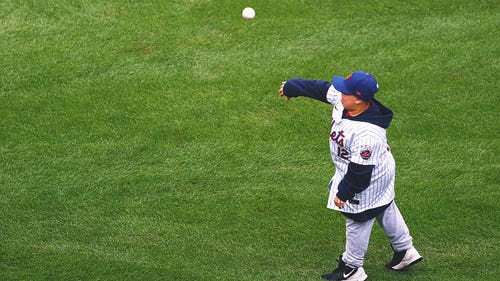
Baseball, softball might still have pulse for Olympic status
The Olympic future of America's national pastime could be decided very soon in Sochi, Russia.
Officials with the World Baseball Softball Confederation are increasingly optimistic that the International Olympic Committee will consider reinstating both sports during its session at the upcoming Sochi Games.
Baseball and softball were last contested as Olympic sports in 2008, and the IOC voted in September against bringing them back for the 2020 Games in Tokyo. (Wrestling was kept instead.) But the IOC may reconsider that decision because of the revenue possibilities -- at the gate and through television ratings -- in the baseball-mad host country.
Tokyo's local organizing committee is said to be lobbying quietly for new IOC President Thomas Bach to give baseball and softball another hearing. If attendance at the World Baseball Classic is any guide, the Japanese team likely would play before massive crowds in Tokyo; interest would be especially high if Nippon Professional Baseball, the top professional league in Japan, agreed to go on hiatus so the country's best players could compete.
"Over the years, we have listened to and learned from the IOC," Riccardo Fraccari, president of the International Baseball Federation, said Thursday in an email to FOX Sports, "and we feel ready to accept the duties, commitment and responsibilities, so that, once again, baseball and softball can be entrusted with being part of the Olympic family of sports."
Fraccari said the inclusion of both sports in the 2020 Games "would significantly accelerate baseball and softball's current rates of expansion and provide a major boost to our National Federation members."
Though Fraccari didn't say so explicitly, baseball programs outside the United States have suffered financially in the absence of funding related to the Olympics.
Major League Baseball commissioner Bud Selig has supported the sport's campaign to re-enter the Olympics, but he has said consistently it is not feasible for the league to shut down entirely for two weeks so all major leaguers would be eligible to compete.
At Beijing in 2008, the U.S. Olympic roster consisted largely of professionals who weren't on 40-man rosters -- a mixture of rising prospects and minor-league veterans, along with then-college star Stephen Strasburg. (The Americans won bronze, behind South Korea and Cuba.) It is very possible MLB officials would permit a similar group of professionals to compete in 2020, but much could change between now and then. Selig is one year away from retirement, and international participation by major leaguers is governed by the collective bargaining agreement, which expires after the 2016 season.
For now, the World Baseball Classic is the only best-versus-best tournament involving professionals on the sport's international calendar. MLB and the MLB Players Association are fully invested in the WBC because, among other things, they control the rules and profits associated with it. (Selig has said he wants his successor to continue the WBC; the next edition is scheduled for 2017.)
Other than the WBC, sources say MLB officials are more inclined to furnish professional players to the Olympics than lower-profile competitions such as the Pan-American Games and IBAF Premier 12. The IBAF plans to launch the Premier 12 in November 2015 -- likely in Asia -- as a successor to the discontinued IBAF World Cup, but the organization has yet to establish specifics or make a formal request to use players under contract with MLB clubs.
Toronto hosts the Pan-Am Games next year, but the baseball and softball competitions will be held at a complex in suburban Ajax, Ontario, instead of the Blue Jays' home stadium, Rogers Centre. The men's baseball competition will include seven teams.





